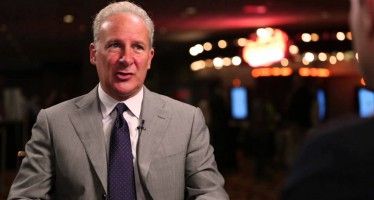CA center gives military new tech leap
Hoping to change the way the defense industry innovates, the Obama administration has pushed the Department of Defense much deeper into Silicon Valley.
The Pentagon announced a sizable new investment anchored by a new Manufacturing Innovation Institute for Flexible Hybrid Electronics, a program to be established in San Jose. “The Institute falls under the aegis of the National Network for Manufacturing Innovation, a network of manufacturing research centers set up by the White House in 2013,” according to Defense News, which noted that the institute will be California’s first of its kind.
Politics and productivity
 Officials played up the size and sweep of the initiative, which brings together more than a hundred of Silicon Valley’s bold-faced names. “The institute will be led by FlexTech Alliance, a consortium of more than 162 companies, nonprofits, labs and universities,” reported the International Business Times. “The consortium includes the likes of Apple, Hewlett Packard, Qualcomm, Boeing and Lockheed Martin as well as Stanford, Harvard and the University of California, Berkeley.”
Officials played up the size and sweep of the initiative, which brings together more than a hundred of Silicon Valley’s bold-faced names. “The institute will be led by FlexTech Alliance, a consortium of more than 162 companies, nonprofits, labs and universities,” reported the International Business Times. “The consortium includes the likes of Apple, Hewlett Packard, Qualcomm, Boeing and Lockheed Martin as well as Stanford, Harvard and the University of California, Berkeley.”
“The San Jose-based institute will focus on developing wearable technologies that could be used to assist wounded soldiers, automobiles and aircrafts in harsh environments and light-weight robotics, among others applications, the department said. Additionally, the institute will be focused on coming up with new ways to lower the cost of manufacturing these technologies so that private American businesses can innovate with them.”
The Obama administration touted the news in a press release. “With a total investment of over $171 million — $75 million in federal funds, and more than $96 million in non-federal contributions — the announcement marks the first manufacturing institute launched that will be headquartered on the West Coast,” it said, using the occasion to challenge Congress to spend even more on manufacturing. “We can make critical bipartisan investments to strengthen manufacturing across the United States, laying a strong foundation for good jobs and economic growth — or we can pull back, letting other countries and their workers take the lead,” the administration argued.
Industry blowback
The effort followed the Defense Department’s April announcement of a Silicon Valley office — dubbed Defense Innovation Unit Experimental — timed to debut with an infusion of venture capital into the region, as the Wall Street Journal reported. Though the political reception was not unfavorable, that initiative quickly attracted the ire of the private-sector security establishment, including big corporations like Boeing and Northrup Grumman. “Defense industry leaders aren’t just offended by the implication that small hardware startups and tech giants such as Facebook and Google are outpacing them in ingenuity,” Politico observed. “More important, they argue, those companies don’t have the slightest idea about military needs or understand how to navigate the Pentagon’s acquisition system — in short, to make their ideas reality.”
This May, Politico added, Northrop Grumman chief Wes Bush suggested that, because Silicon Valley tech attracting Pentagon interest was “inherently broadly available,” supplied “no national security advantages by definition.”
But security and war fighting experts have already envisioned applications with much narrower and more powerful uses. “For the Pentagon, the benefits could be myriad. Imagine a thin plastic computer worn around the wrist that could provide live biometric data on a solider in the field, or a laptop that could be rolled up into a mat and moved from operating centers with ease,” Defense News suggested. “Such technology could also cut the weight aboard ships or planes, providing more space for cargo, while the ability to mold sensors to the outside of a fighter jet could reduce its radar signature and wind resistance.”
Whatever the objections from established players, Defense officials have adopted a full-steam-ahead approach. The Air Force has opened a Silicon Valley outreach office of its own; as NBC San Diego reported, in his first visit to Camp Pendleton at the end of August, Defense Secretary Ash Carter boasted that the Defense Innovation Unit Experimental would help “connect the Department of Defense to the innovative community of California and around the world.”
Related Articles
Money and costs become central theme of cap and trade
When discussing California’s landmark cap-and-trade legislation set up to pay for carbon emissions, there is more conversation about money than
Assembly panel unanimously passes bill to limit effect of federal tax overhaul
Despite a fresh warning from the Internal Revenue Service, a key committee in the California Legislature on Friday unanimously advanced
Video: Peter Schiff on the gold standard
Businessman and investment broker Peter Schiff sits down with CalWatchdog’s James Poulos to discuss whether or not the gold standard can save




